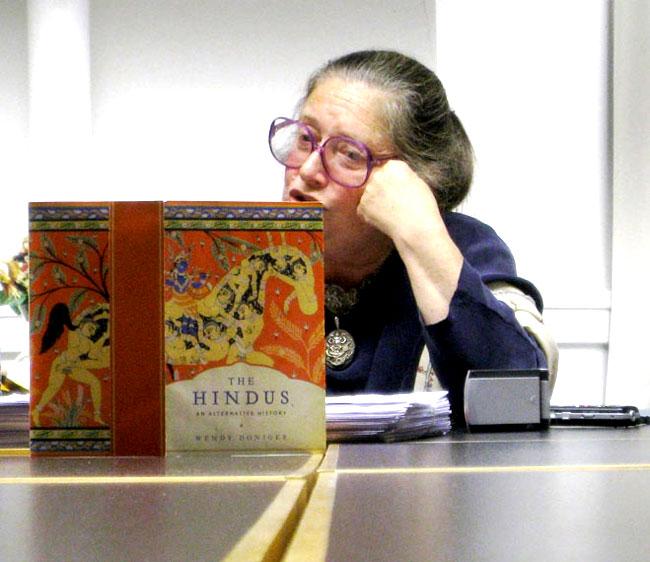Penguin Books India has agreed to will recall and withdraw all copies of American scholar Wendy Doniger's 'The Hindus: An Alternative History' "with immediate effect" and have them pulped in India

New Delhi: Penguin Books India has decided to withdraw copies of US Indologist Wendy Doniger's book "The Hindus: An Alternative History" following a court-backed settlement with a Delhi-based voluntary group which had objected to several "inaccuracies and biases" in it.
In the agreement with Shiksha Bachao Andolan Committee, Penguin reportedly had said it "shall with immediate effect recall and withdraw all copies of 'The Hindus: An Alternative History' written by Wendy Doniger" and "shall not publish or distribute the book", according to details available on social media.
When contacted, Penguin officials declined to comment.
 US Indologist Wendy Doniger reading her book 'The Hindus: An Alternative History'. File Pic
US Indologist Wendy Doniger reading her book 'The Hindus: An Alternative History'. File Pic
The publisher reportedly agreed that it will pulp at its own cost "all recalled, withdrawn, unsold copies". It also reportedly agreed to ensure that the book is "completely withdrawn or cleared from the country at the earliest, within a period nor exceeding six months starting from the date on which this agreement is signed (February 4)".
In 2011, a civil lawsuit was filed against the publisher by Shiksha Bachao Andolan.
The book also has two other criminal complaints against it. The petitioners alleged that the book, which focuses on different aspects of Hinduism, has lot of "inaccuracies and biases" and was full of various sexual connotations.
However, the blurb of the "The Hindus: An Alternative History", says it is a definitive narrative account of history and myth that offers a new way of understanding one of the world's oldest major religions.
The 800-page book, published in 2009, elucidates the relationship between recorded history and imaginary worlds. Doniger is regarded as one of the foremost scholars of Hinduism.
In her unique and authoritative account, she debates about Hindu traditions become platforms from which to consider the ironies, and overlooked epiphanies, of history.
 Subscribe today by clicking the link and stay updated with the latest news!" Click here!
Subscribe today by clicking the link and stay updated with the latest news!" Click here!









